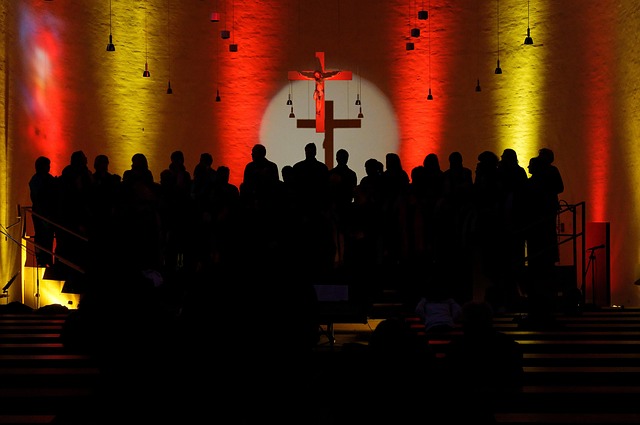The concept of a dedicated day for inner reflection has appeared in countless cultures across the globe. In many places, it is known by a special name that hints at a deeper spiritual purpose. One such term, used in parts of Eastern Europe, is the phrase “lelki nap.” It literally means “the day of the soul,” but translators often render it as a “spiritual day.” This day is a quiet pause, a communal invitation to look inward, to honor the subtle currents that guide personal growth and collective harmony.
Historical Roots and Etymology
The word “lelki” derives from a Slavic root related to the soul, while “nap” denotes a day or period. The phrase emerged during the medieval period, when monastic communities began to formalize specific times for meditation and confession. It was later adopted by folk traditions as a way to mark a yearly opportunity for self‑examination beyond the strict confines of formal religious observances.
- Early monastic practices in Eastern Europe emphasized yearly retreats.
- The term entered popular vernacular in the 17th century, often spoken in rural villages.
- By the 19th century, it had spread to neighboring regions, integrating local customs such as candle‑lit vigils.
Rituals Across Regions
Although the core idea remains consistent—a day devoted to the soul—different communities have adapted it to fit their own cultural frameworks.
“On Lelki Nap, we light a single candle at dawn, sit in silence, and listen to the stories of those who came before us.” – Elder of a village in the Carpathian foothills
- In northern forests, people gather for a “forest walk,” a meditative stroll through ancient woodlands.
- In coastal towns, fishermen retire early, sharing meals that include symbolic bread and salt to cleanse the body and mind.
- Some urban congregations hold evening prayer services that blend liturgical chants with modern music, reflecting a synthesis of tradition and contemporary life.
Core Themes and Philosophical Underpinnings
The spirit of Lelki Nap centers on four intertwined themes: reflection, gratitude, renewal, and communal connection. Each theme is expressed through specific practices that encourage individuals to pause, consider, and reconnect with their inner selves and with each other.
- Reflection – individuals review personal actions, intentions, and the alignment between their values and daily conduct.
- Gratitude – acknowledging blessings, both material and intangible, fosters a sense of abundance and humility.
- Renewal – through fasting or abstention, people symbolically cleanse themselves, preparing for new beginnings.
- Communal Connection – shared meals, storytelling, and collective rituals reinforce social bonds and mutual support.
Comparative Insights with Other Spiritual Days
When viewed alongside other global traditions such as Ramadan, Yom Kippur, or the Christian observance of All Souls’ Day, Lelki Nap shares common motifs while retaining unique cultural flavor.
“Lelki Nap is not about punishment or strict rules; it is a celebration of the soul’s quiet journey.” – Spiritual Guide from a neighboring town
- Like Ramadan’s fasting, Lelki Nap may involve dietary restrictions that serve both physical and spiritual purposes.
- Unlike Yom Kippur’s intense penitential tone, Lelki Nap focuses more on personal gratitude and communal harmony.
- It shares with All Souls’ Day the practice of remembrance, but through everyday storytelling rather than formal liturgy.
Practical Guidelines for Observers
Those who wish to honor Lelki Nap can do so without extensive preparation. The following suggestions balance tradition with flexibility.
- Begin the day before dawn with a quiet moment of intention. Write a single thought or prayer on a piece of paper.
- Consume a simple, wholesome meal—preferably plant‑based—to keep the body light and receptive.
- Take a short walk in nature, paying attention to the sounds, scents, and textures around you.
- Invite a friend or family member to share a story that reflects resilience or hope.
- End the day with a brief meditation or prayer, focusing on the gratitude for the day’s experiences.
These steps are not mandatory; rather, they serve as a framework that can be adapted to fit personal or communal circumstances.
Modern Adaptations and Digital Presence
In the age of technology, Lelki Nap has found new avenues for expression. Many communities now host online reflection sessions, encouraging participants from across the diaspora to join virtually.
- Live‑streamed candle vigils with synchronized lighting to create a shared visual experience.
- Digital journals where individuals can anonymously share reflections and receive supportive comments.
- Social media challenges that prompt followers to post one positive affirmation each day leading up to Lelki Nap.
These innovations preserve the essence of the tradition—silence, gratitude, and community—while broadening its reach.
The Psychological Impact of a Spiritual Day
From a mental‑health perspective, taking a day to focus on the soul offers measurable benefits. Psychological studies have linked intentional reflection to reduced stress, increased emotional resilience, and improved interpersonal relationships.
- Reflective practices help individuals reframe negative experiences into learning opportunities.
- Group rituals strengthen social support networks, which are protective against anxiety and depression.
- Mindful eating during the day fosters a healthier relationship with food and body image.
Thus, Lelki Nap’s emphasis on inner calm and communal bonds aligns with contemporary insights into holistic well‑being.
Future Outlook: Sustainability of Tradition
As society accelerates toward rapid change, the sustainability of spiritual practices like Lelki Nap depends on adaptability and relevance. Future generations may reinterpret the day to address emerging global concerns—environmental stewardship, social justice, and digital well‑being—while maintaining the core intent of honoring the soul.
“Our children will carry this day into a future that is different from ours, but the heartbeat of reflection will remain.” – Youth Coordinator in a small mountain village
- Incorporate eco‑friendly rituals, such as planting trees as a symbol of growth.
- Use the day as a platform for community dialogues on pressing social issues.
- Encourage digital mindfulness practices to balance online engagement with real‑world presence.
Conclusion: The Enduring Power of Lelki Nap
The phrase “lelki nap” translates to a “spiritual day” that invites everyone to pause and listen to their inner voice. It is a bridge between past and present, individual and collective, earth and spirit. Whether observed in a quiet cabin, a bustling city center, or through a screen shared across continents, the day offers a sanctuary for reflection, gratitude, renewal, and connection. As humanity continues to navigate complexity, the simple act of honoring the soul—once a tradition rooted in a single language—remains a universal balm for the human experience.



